Project Description
Interview with Scott Darlow
Having called the music industry home for a number of years now, ex-school teacher turned singer/songwriter Scott Darlow discusses his debut solo album, Sorry, working with Shane Howard and being an ambassador for World Vision Australia.
Congratulations on the release of your latest album, Sorry. Can you tell me about the inspiration behind the record as a whole?
Thank you. Yeah, it’s a really interesting record. Some of the songs are really old and some of them are new, so I guess in some ways it feels like it’s really telling the story of my life over the last several years. One of the things that I get comments about is, there’s a real diversity between the songs. There’s some love songs, a break up song, but then there’s some real political songs as well. So for me, I feel like it’s a real representation of the different parts of my life over a journey of the last several years.
This is touted as your debut solo album, but you’ve released albums under different monikers, such as The Darlow Show, over the years. How does this compare to previous releases?
That’s a good question. So The Darlow Show was a band that I started years ago. We got around as kids and we toured the States and Asia and had a really fun time, but like any band, it’s not you, it’s a band. Even though it’s my name on the bill … there was a drummer in that band – a guy called Callum and he’s now a producer, and he had a lot of ideas when it came to producing records and writing – and then Lyndon who played guitar, he’s also now a producer, and he’s done solo records himself.
Being in a band with two guys in production particularly, it really was a group consensus all the time, whereas with this record, it’s been a situation where I’ve really been able to make the record I wanted to make, I think, which has been exciting. And also, being able to come and investigate what songs I wanted to put on it, and have people say, “No, don’t put that song or this song on.” It’s been a lot more of a personal, selfish representation, put it that way.
What was the recording process like?
It was cool, actually. We recorded all the drums and bass and guitars in America. All the drums and bass we recorded in an old studio down in San Clemente in Orange County, almost towards the San Diego border.
We recorded to two-inch tape, analogue. So, in today’s day and age, everything’s … all digital. We actually went and bought reels of tape in Hollywood, and then recorded the drums. I don’t know if anyone can hear it, but every time I hear the drums and bass, I just love ‘em, cos they sound really big and fat to me. And then guitars we recorded in Long Beach.
It was a really exciting experience to be in the States recording with other players, and just immersed in that environment.
The vocals are really interesting. I had a go at doing them with the guy who produced all the guitars and drums, and just wasn’t happy with how they sounded, and then I came back to Australia, and I had a go at recording a fresh set with Irwin Thomas – you might know him as Jack Jones, he used to sing in a band called Southern Sons. Jack and I had a go at them for a couple of weeks, and I still wasn’t one hundred percent happy with them. I had this thing in my head, “It doesn’t matter how good the guitars sound, the drums, if I don’t nail the vocals [and] I’m not one hundred percent happy with them, it doesn’t matter.
So eventually, somebody who knew somebody who knew somebody who knew somebody recommended that I go and see Adrian Hannan – Adrian’s a producer who lives in Melbourne and he’s worked with everybody from Delta Goodrem to … all Taxiride’s early stuff. He discovered Gabriella Cilmi, he’s just an amazing producer, an amazing vocal coach and a beautiful human – and he actually taught me how to sing in the studio. Even though I’d done records before, looking back now, I had no idea what I was doing back then (laughs) … We got ‘em done, and he actually produced the sessions with Shane Howard as well [and] really helped us get that duet cobbled together, which was a whole thing in itself.
I did actually want to talk to you about how a few of your songs reflect your Aboriginal heritage. How important is it for you to include those messages of cultural awareness in your music?
I think it’s important, because it’s who I am. If I’m gunna be making a record, it’s gunna be telling the stories of my heart, and it’s my song lines. There’s a song on the album called My Love, which I wrote about my daughter when she was born – I love her, she’s my daughter – but similarly, a song like Sorry is a song I wrote about my family and the ache in my heart to see my people do better.
It’s not so much like I’m trying to make some political statement, it’s my song lines. These are songs that are in my heart, and my story and my journey. For me, that’s what an artist does. He shares himself with the world via music. And the flipside of it is, it allows me to have a platform and challenge people to be changemakers.
But I think you can only have those songs and do that if … they’re coming as a representation of your spirit. I think if you [can’t] try to write songs to be antagonistic or to try and be a changemaker if that’s not who you are. They’ll come across as being disingenuous.
I interviewed Shane Howard a few months back. As you said, you worked with him on your version of Solid Rock. What was that like?
(Laughs) Mate, it was so good! You gotta understand, I grew up idolising Shane, you know. I asked him to do the duet not for a minute thinking he’d say yes. So then when he said yes … To be honest with you, I don’t think that I really believed it would happen until his van pulled up out the front of the studio and he stepped out of his van. (Laughs) And I’m just like, “Oh my gosh, this is happening!”
It was an early morning session, 9am, and he gets out of the van and steps up to the microphone, and just nails it! He gave me a lesson: this is how you be a pro in the studio at nine o’clock in the morning after four hours’ sleep. The guy’s a phenomenal artist!
But aside from being inspired by him musically, I’ve just been inspired by getting to know him; he’s just so humble and generous and the guy’s got an amazing capacity to love. I can’t speak highly enough of Shane and how talented and generous he’s been … It’s been like doing an apprenticeship, looking at somebody who’s older and going, “I’d really like to be like him when I’m older.”
When I asked Shane about that song, he said it seems to have grown and changed somewhat over time, and always gets a good crowd reaction when performed live. What is it about Solid Rock, for you, that continues to resonate today?
Look, there’s a lot of things about that song that makes it resonate. I sing in a hundred high schools a year around Australia. It’s funny, if you look at my Facebook page, there’s footage of me singing that song to 150 Year 12 boys from St Bernard’s College in Essendon, they were all singing along, chanting a lyric out. And I’m going, “Here are 17/18-year-old boys singing their lungs out to an acoustic guitar and one dude.” And that’s not because of me, it’s because that song is just a magical song. [It’s] partly because of the truth that lies in the lyric; it’s a history lesson – I’m an ex school teacher; you could teach a lyric in that song as a history unit – but then musically, it’s a friggin’ great rock song.
And I also think, without sounding too much of a hippy, … there’s stuff that happens in the spiritual realm when music is playing, that we don’t understand. I think there are certain songs that connect with people’s spirits. I don’t know why and I don’t know how; if we knew why and how, we’d all be writing hits and I’d be retired on a beach somewhere. But I think that’s one of those songs. It’s got some magic in it. It connects and it joins people’s spirits.
You’ve done a lot of community work, playing in schools and providing assistance to Aboriginal communities in need. Can you tell me about that and your work with World Vision?
Yeah, I don’t know that I’ve provided assistance to Aboriginal families in need directly. What I do is I go and sing and speak in high schools all over the country, and use my music to educate students about the real history of this country.
I don’t do it in a negative way. It’s not about trying to make people feel guilty because of their ancestors or blaming people, but it’s about saying, “This is what happened in our country, and what happened in 1788, that directly affected what happened in 1800, and that directly affected what happened in 1810, and so on and so on.” History connects history and connects history, and that connects to the future.
The things that we see in Australia today, like the life expectancy disparity, the fact that Aboriginal children are 10 times more likely to go to prison than finish high school … all of these things are a direct result of compounded history.
By teaching people the history of this country, what you do is you allow them to have an understanding of why things are the way they are today. Once you understand why, that gives you an ability to try and negotiate with the present and find a way forward that’s positive and healthy.
I try and do that, and go in to hopefully inspire students and teachers to have empathy and really want to create change and fix some of the problems that we see. The way that I do that is I talk to them about F.L.U.T.E (which is an acronym for Forgiveness, Love, Understanding, Tolerance and Empathy), and by everybody [hearing] that word and deciding to incorporate it into their day, every day, and try and change a percent more of those things to every person they encounter, it’s kind of like a pay it forward [scheme] …
But then the other way is talking about World Vision. For $35 a month (a dollar a day pretty much), you can sew into an Aboriginal community and help education and health outcomes, all these programmes.
I often say to people, “It’s great that you sponsor kids overseas. Please don’t stop doing that – we really need that to happen. But I reckon a lot of people can afford to take care of our back yard as well as someone else’s.”
Between education and really promoting the amazing work that World Vision Australia do, I’m doing my part, I think.
How do you believe that music in general can help us as a nation towards that ultimate goal of reconciliation?
Well, I think in a number of ways. As I said before, there’s stuff that happens in a person’s spirit when music is played. A song like Sorry, I’ll get people come up to me – I’ll often close my show with it typically – and they’ll be in tears, and they can’t even tell you why. That song particularly has been a real gift to me. I remember writing it. I was sitting on the couch at my mum’s house with a pen and paper and I had this lyric written. The impact I’ve seen that song have in people who hear it is overwhelming.
I think it’s a thing that happens in the spirit with music. But, also just the platform it gives. On Saturday night, I had the privilege of opening for Diesel in Melbourne and before I sang that last song, I got to talk for five minutes, not even five minutes, three minutes, about the work that World Vision do, and after the show I had a table where I was selling CDs, but I also had flyers. All these people came and took flyers. Some of them will go and sponsor the program.
I think you can really educate through lyric [and] you can educate through what it does to a person’s spirit. But also just tangibly, getting to talk to people on stage and afterwards … everyone loves music, and it allows you to share your message with all kinds of different people.
What are some of your personal career highlights?
Oh gosh, there’s been so many, even just this year … I remember the first time we toured Hong Kong, back with The Darlow Show, we got taken by a rotary group to China. We got to spend Chinese New Year at a home for people who had had leprosy. So they were no longer contagious, but they’d lost limbs and fingers and eyes.
In China, they believe that was because they’d sinned or they’d had bad luck in the family, so they were shunned by society. They’d drop off donations on the highway, they wouldn’t even take them down to the village. We got to go and sing with these people and hang out with them and have a feed with them. That was over 10 years ago, and it’s still burned into my memory, hugging these people who’d had no human contact for who knows how long.
Doing things like that, going to Africa … I got to play in a Zulu village for these people, half of them had walked for two hours on a dirt road just to be there. But in Australia, getting to play to teenagers, getting emails from kids who turn around and go, “I told my dad about the things you told me and now he’s starting to change the way he thinks about Aboriginal people.” or “We’re sponsoring the program.”
Right down to really selfish things like getting to meet and record with Shane Howard, getting to play with guys like Diesel. Saturday night I got to play digeridoo in Diesel’s set with him. I was like, “This is outrageous.”
Playing in America, I played at a venue that Stuart Copeland owned. My drummer’s sitting there playing Stuart Copeland’s drums …
There’s a lot of hard yakka that goes into being a muso that no one sees, being away from your kids and playing to strange people and not getting paid. But every now and then you get a nugget, where you just go, “Oh my gosh. It’s totally worth it.”
You said Sorry has received quite an emotional response from audiences and your fans. What are some of your other favourites from the album and your back catalogue that you really enjoy, or receive a good response?
It’s subjective, isn’t it? I got my streaming stats last night and Girl, which is a break up song, streamed really well. It’s poppy and it’s hooky and I like it [but] it’s funny what people connect to.
For me, the most recent song on the album is a song called Runaway – I’m gunna say it’s track three. I’d finished the album, it was mixed, mastered and it was done, and I got invited to spend some time at a school in Broad Meadows in Melbourne, a poorer area, and it was a six week stint of helping these kids learn how to write songs, teaching these Year 9’s how to song write. It’s not something I’d ever usually do, but they asked me to do it, and it was near where I live, and I was like, “Yeah, alright. I’m gunna be around.”
There was one boy in the class … who was telling his mum and dad’s story. They were from Iraq and they got married at 18 and 19. And his mum fell pregnant straight away … and some things changed politically where they lived, and they had to get out, fast. They sold everything they owned, including their shoes, trying to get as much cash together. And his mum’s 18, pregnant and barefoot, and they walked from Iraq to Turkey [approx. 991 km/616 miles], eating berries and crap along the way.
It just blows my mind. Talk about perspective. What we think is a bad day here in Australia, you know, get to McDonalds at 10:35am and they’ve finished making breakfast. And this girl, she loved this unborn child and she loved it so much, she’s going to walk barefoot from one country to another … so I wrote this song, Runaway.
We were doing the Solid Rock tour at the time, playing the East Coast, and I remember the night it happened. We played at Surfers Paradise Beer Garden and it was packed, about 600 people. And I told this story and we played this song, and by the end, you could have heard a pin drop. They just went off. And I thought, “OK, we probably need to record this.”
So we went back into the studio and tried to match the sounds that we made in LA. Adrian Hannan was brilliant with that, and it made the record … I grew up in Hong Kong, my dad ran refugee camps over there for the Salvation Army, so I’ve always had a real heart and passion for people generally, but particularly for refugees. I think that song I love.
What advice would you give to aspiring musicians?
Never give up. Every time you get an opportunity to play, just do it. Whether it’s open mic nights or parties. There’s no substitute. And when people tell you you’re rubbish (and they will), don’t own those words. Just keep on going. “The only place that success comes before work is in the dictionary.” I love that saying.


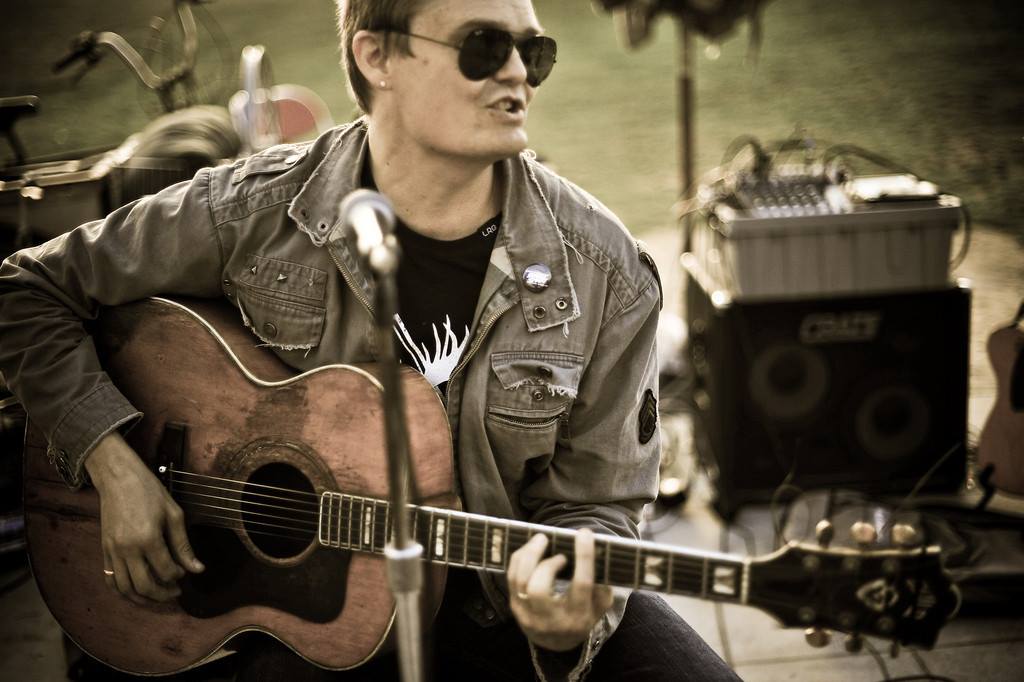
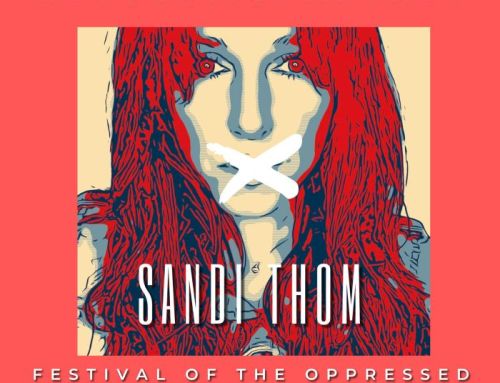
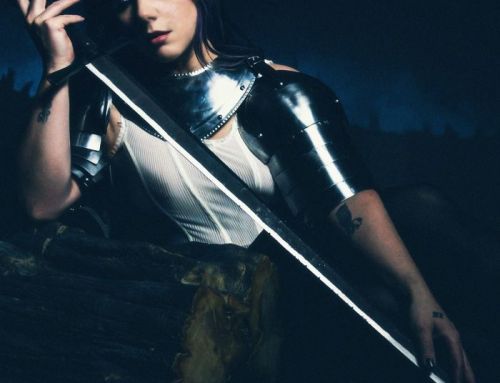
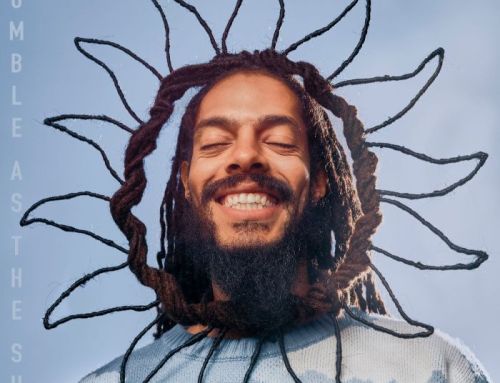
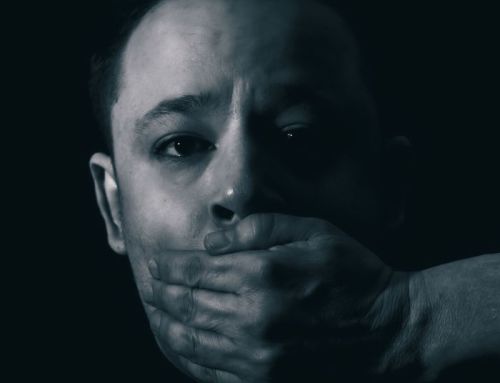
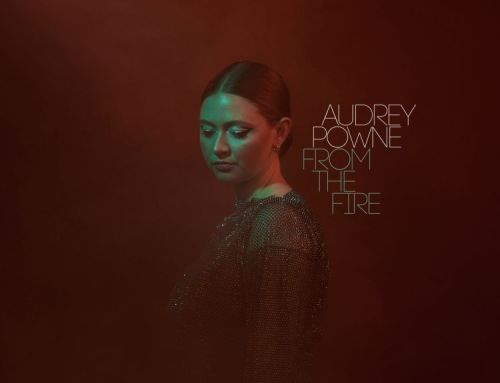
Leave A Comment